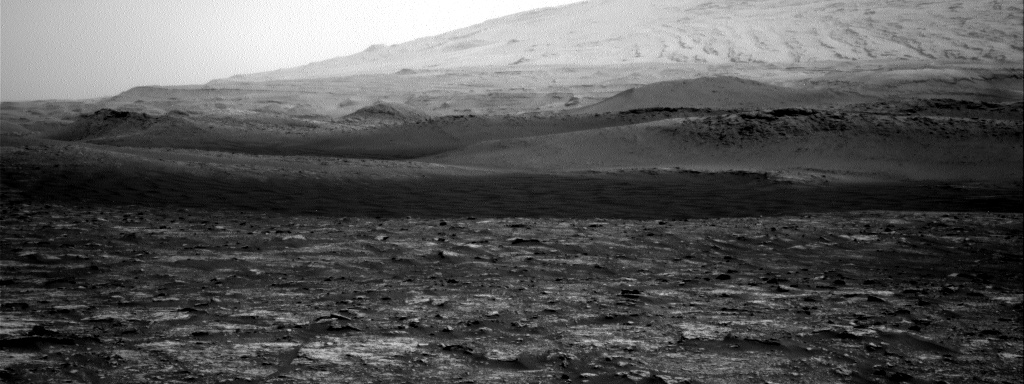https://www.foxnews.com/science/mars-dust-devil-nasa-curiosity-rover By James Rogers | Fox News
NASA’s Curiosity Rover has spotted a dust devil traveling across the surface of Mars.
The rover captured remarkable footage of the dust devil from its vantage point in Mars’ Gale Crater.
“It’s almost summer in Gale crater, which puts us in a period of strong surface heating that lasts from early spring through mid-summer,” said Claire Newman, atmospheric scientist at Aeolis Research, in a blog post. “Stronger surface heating tends to produce stronger convection and convective vortices, which consist of fast winds whipping around low pressure cores.”
NASA’S CURIOSITY MARS ROVER CELEBRATES 8 YEARS ON THE RED PLANET
The animated GIF shows a dust devil was captured over a five-minute period by the rover’s NAVCAM (Navigation Cameras) on Martian day, or Sol, 2847.
“We often have to process these images, by enhancing what’s changed between them, before dust devils clearly show up,” Newman explained in the post. “But this dust devil was so impressive that -- if you look closely! -- you can just see it moving to the right, at the border between the darker and lighter slopes, even in the raw images.”

NASA's Curiosity Rover spotted the dust devil on the surface of the Red Planet. If you look closely, you can just see it moving to the right, at the border between the darker and lighter slopes. (Credit NASA/JPL-Caltech)
NASA’s Curiosity Rover touched down on Mars’ Gale Crater on Aug. 5, 2012, and recently celebrated eight years on the Red Planet.
Last year, the rover detected an “unusually high” level of methane on Mars, and in 2018 NASA revealed that it had found organic molecules.
In July, NASA’s Mars 2020 Perseverance Rover launched on its epic mission to the Red Planet, a journey that is expected to take seven months. The rover is scheduled to land on Mars’ Jezero Crater on Feb 18, 2021. The mission’s duration on the Red Planet’s surface is at least one Martian year or about 687 days.
NASA’s long-term goal is to send a manned mission to Mars in the 2030s. However, former astronaut Buzz Aldrin thinks that a slightly later target date of 2040 is more realistic.
In an interview in 2016, the Gemini 12 and Apollo 11 astronaut told Fox News that he believed astronauts could visit Mars’ moon Phobos by 2040, which could serve as a sort of stepping stone to the Red Planet.
Fox News’ Chris Ciaccia, David Aaro and the Associated Press contributed to this article. Follow James Rogers on Twitter @jamesjrogers
Follow James Rogers on Twitter @jamesjrogers